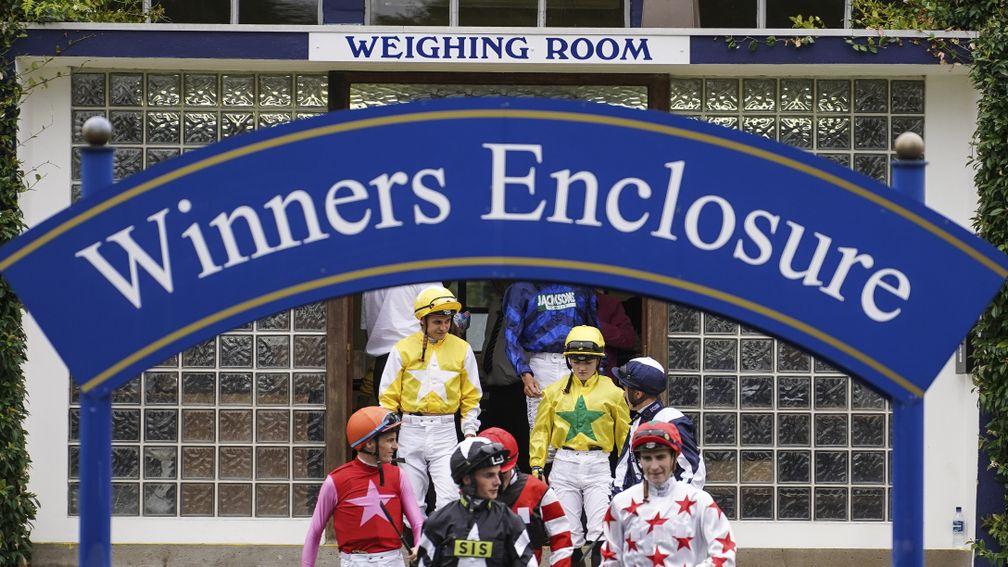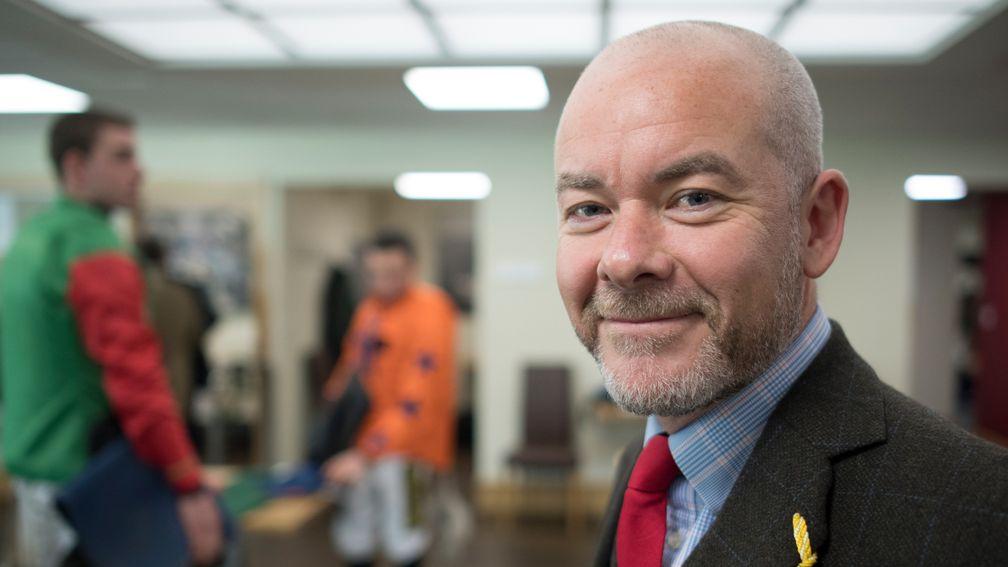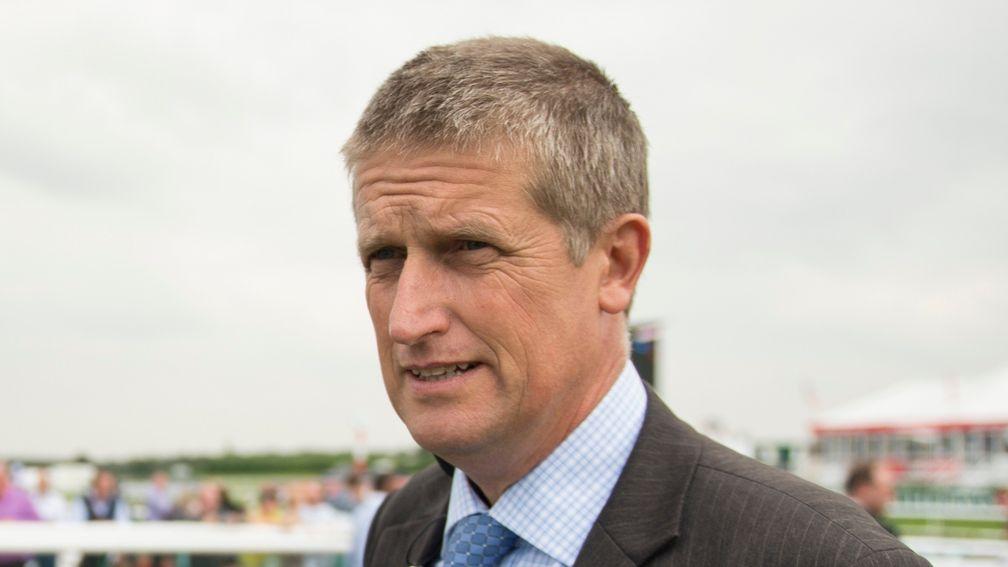Jockeys' chief warns sport puts unendurable pressure on professionals

Racing is putting "unsustainable" pressure on the mental health of industry participants, Professional Jockeys Association chief executive Paul Struthers has warned.
He was speaking following the comments of Roderick Duncan, clerk of the course at Doncaster and Southwell, who spoke frankly to the Racing Post about work-related stress that led to a breakdown last year.
Duncan outlined how he allowed racing to "dominate everything" – something Struthers has seen replicated among his members.
He believes awareness and support for mental health issues has never been better, but stressed more must be done, including a close look at the fixture list.
Struthers, who has suffered from depression and would like to see more funding made available, added: "I think racing is by far and away in its worst position with mental health, purely from a demand aspect and the impact that putting the show on the road is having.

"I'm talking about jockeys, trainers and racing staff, but it isn't just them, it can also be the staff at the racecourse. It's quite clear from Roderick's comments that the demands on him were a significant part of the issue.
"I think it's a conversation we've had in the sport because the current situation is unsustainable for the mental wellbeing of everyone.
"The volume of the fixture list is a significant factor – we know that from research – but you'd need a more nuanced approach that just a cut of fixtures to deal with it; it's things like making sure there are regular code-free days [Flat-only or jumps-only days]. There are some, but we need more.
"There's a significant amount of work that needs to be done that other sports are now doing. They're being cognisant of the impact of fixture growth on participants' physical and mental well-being. That's the part racing has made slight progress on, but it needs to be significant and rapid.
"There are conversations, but they need to move on at a pace. It's clear from this that the demands on other sectors of the industry are equally big.
"Time off and down time are crucial and it's lacking in racing, certainly for our members, for trainers and staff from the Racing Welfare research, and, quite clearly, from Roderick's comments for some of those on the racecourse side."
Struthers added: "Huge credit to Rod for coming out and talking so openly. It's a subject that's close to the PJA's heart and we're very open about it, and provide significant amounts of support to our members.
"Every time someone in a role of importance talks openly it's a fantastic thing that can only serve to help others, so well done Rod for that."
Like Struthers, Will Lambe, the BHA's executive director, praised Duncan's approach to a difficult situation and said his words could act as a wake-up call to many.
"The whole of British racing should be grateful to Roderick for speaking so openly, and powerfully," he said. "Credit should also go to Arena Racing Company as his employer, the doctor at Doncaster whose advice was clearly invaluable and those around him for the support they have provided.
"In Racing Welfare, our sport has a charity of which we should be very proud, and its range of confidential services is available to all.
"As with the recent report Racing Welfare commissioned, the picture Roderick paints is, sadly, not an unfamiliar one. The flip side of a sport in many ways sustained by the passion of those working within it is one that can become all-encompassing and create considerable pressures on individuals.
"In the short term, removing the stigma associated with talking about mental ill-health will go a long way, as will those within British racing doing a little more to understand and respect others' positions. We all have a role to play in this, including the racing media."
Duncan also urged racing professionals to put an end to a culture of criticism and confrontation, although Struthers does not think there is a problem with the conduct of jockeys with racecourse officials.

He continued: "Jockeys regularly give feedback to clerks of the course and, in our experience, that's done in exactly the right way.
"From time-to-time there are issues where strong views are expressed and we constantly stress to our members there's a process to be followed and there's a way to express themselves.
"We do sometimes get reports that certain behaviour isn't ideal and when that happens we speak to individuals involved, but from our perspective those conversations are rare.
"Everyone in the sport is on the receiving end, so it would be disappointing if those who are part of a group on the receiving end have on occasion been dishing it out. Hopefully Roderick coming out and being so open will make people stop and pause and think, 'Yes, I'll raise my concern, but do it in the right way'."
Duncan's troubles arose, in part, from the difficulty of managing an abandoned meeting at Doncaster in November, when horses slipped.
The track, normally a favoured one for jumps trainers in the winter because of its sound surface, endured a subsequent trying dry spell.
Rupert Arnold, chief executive of the National Trainers Federation, was aware of some concerns over the course's conditions, but called on those involved to be mindful of maintaining relationships that promote the good of racing.
He said: "I expect there will be some conversation in meetings we have with trainers in the light of what Roderick has said and I know there were examples where trainers were a bit dissatisfied with ground conditions at Doncaster, but irrespective of that, as long as we hold conversations in a respectful manner we should all get along fine."

In his previous role as a communications operator for the BHA, Struthers got an "awful lot of stick", but reckons the industry is mainly courteous to each other.
"I think there are lessons in this for everyone in society, but I think we're pretty lucky in racing," he said. "Whether it's a hark back to the traditions of racing, but people are generally respectful of each other.
"Rugby would be another good example where respect to officials is held up and there's been some lapses in the last few years, but it's something the Rugby Football Union clamp down on immediately.
"Within racing there's a lot of respect shown for the most part. I've always thought being a clerk of the course is a thankless task – they're damned if they do and damned if they don't.
"Do they get things wrong? Of course they do, everyone does in every occupation and it's just important to understand each other a bit more."
Did you know you can bet via the Racing Post mobile app/website? Simply sign in with your favourite bookmaker via the Accounts button and then bet direct from our racecards
Published on 3 July 2019inNews
Last updated 19:40, 3 July 2019
- 'My career has been marked by some great moments of joy' - modern master Olivier Peslier to retire on Thursday
- The latest edition of the Racing Post is available to read online now - here's how you can access it
- How Smart View recorded a 76 per cent profit at the Cheltenham Festival
- Smart View is available on the Racing Post app - how to read the revolutionary new racecard
- Levy reform talks 'accelerating' as clock ticks down to April deadline for agreement
- 'My career has been marked by some great moments of joy' - modern master Olivier Peslier to retire on Thursday
- The latest edition of the Racing Post is available to read online now - here's how you can access it
- How Smart View recorded a 76 per cent profit at the Cheltenham Festival
- Smart View is available on the Racing Post app - how to read the revolutionary new racecard
- Levy reform talks 'accelerating' as clock ticks down to April deadline for agreement